Issue #8
Winter
2012/13
In this issue:
- Message From Executive Director, David Clarke
- Range Report Follow-up
- Welcome To Ken Zielke
- Government Responds To Board Recommendations
- Field Season Summary
- Strategic Planning: Board Priorities For 2013
- Forestry Activities Of Non-forestry Operators And Their Impacts To Forest Resources
- Changes To Legislation Limit Board Oversight Of Oil And Gas
- Terreweb
Chair's Message
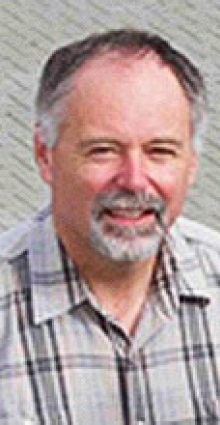 “Social licence” is a term used to describe the general approval society gives to industries operating on public lands. The extent to which social licence exists depends upon the public’s confidence that industries will follow the rules, act responsibly, and generate more public benefit than harm.
“Social licence” is a term used to describe the general approval society gives to industries operating on public lands. The extent to which social licence exists depends upon the public’s confidence that industries will follow the rules, act responsibly, and generate more public benefit than harm.
The Board believes that independent oversight is an important and cost-effective method for fostering public confidence and contributing to social licence. Over the past 17 years, the Board has provided the public with over 400 reports on the practices of the forest industry and government. The results have contributed to improved practices and this oversight model has been positive for the forest industry.
Mining, oil and gas, electric power and tourism developments are increasing in many areas of BC. These developments can include clearing of forests for transmission lines and access roads construction – activities traditionally in the domain of the forest industry. Perhaps a similar level of independent oversight would help ensure these industries are meeting their obligations to protect the environment, thereby maintaining their social licence to operate on public land.
The Board is interested in your thoughts on this. Please share your ideas by commenting on our Facebook page, through Twitter or by Email.
Message From Executive Director, David Clarke
 After the first 3 ½ months in the seat as Executive Director, I have to say “I am impressed!” I am impressed with the knowledge, the work ethic and the passion of the staff; impressed with the respect that government, industry and the public have for the Board and its’ reports and; and impressed with the desire the staff has to serve the public interest as the independent watchdog for sound forest practices in BC. I also have a concern and that concern is for the cumulative effects occurring on the land base and the lack of coordination on the administration as well as independent oversight on these effects. We as a province and a community need to do more.
After the first 3 ½ months in the seat as Executive Director, I have to say “I am impressed!” I am impressed with the knowledge, the work ethic and the passion of the staff; impressed with the respect that government, industry and the public have for the Board and its’ reports and; and impressed with the desire the staff has to serve the public interest as the independent watchdog for sound forest practices in BC. I also have a concern and that concern is for the cumulative effects occurring on the land base and the lack of coordination on the administration as well as independent oversight on these effects. We as a province and a community need to do more.
Range Report Follow-up
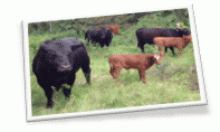 In 2009, the Board made several recommendations to government to improve the range planning requirements in FRPA. Shortly thereafter, the reorganization of resource ministries began, responsibility for range resource management was moving around, and a response to these recommendations never materialized. Over the next few years, we continued to do work that looked at range practices and we continued to see many of the same issues. Most recently, our July 2012 audit of water management in two Okanagan community watersheds identified range practices as a major issue for water quality. In October 2012, the Board Chair wrote to the deputy minister at FLNRO and requested the long overdue response to the 2009 recommendations. The Board sees our advice as more relevant than ever. A copy of the letter is posted on our website, as will the response when we receive one.
In 2009, the Board made several recommendations to government to improve the range planning requirements in FRPA. Shortly thereafter, the reorganization of resource ministries began, responsibility for range resource management was moving around, and a response to these recommendations never materialized. Over the next few years, we continued to do work that looked at range practices and we continued to see many of the same issues. Most recently, our July 2012 audit of water management in two Okanagan community watersheds identified range practices as a major issue for water quality. In October 2012, the Board Chair wrote to the deputy minister at FLNRO and requested the long overdue response to the 2009 recommendations. The Board sees our advice as more relevant than ever. A copy of the letter is posted on our website, as will the response when we receive one.
Welcome To Ken Zielke
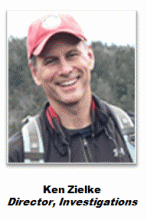 In mid-October, Ken Zielke joined the Board as the new Director, Investigations. Ken takes on responsibility for the Complaint Investigation and the Special Investigation programs. Ken was previously a forestry consultant and has done a great deal of work for government, industry, and for the Board on a few occasions. He brings a wealth of practical forestry knowledge and a strategic perspective to the Board. https://www.bcfpb.ca/reports-publications/reports/how-much-of-british-columbias-forest-is-not-satisfactorily-restocked-and-what-should-be-done-about-it/
In mid-October, Ken Zielke joined the Board as the new Director, Investigations. Ken takes on responsibility for the Complaint Investigation and the Special Investigation programs. Ken was previously a forestry consultant and has done a great deal of work for government, industry, and for the Board on a few occasions. He brings a wealth of practical forestry knowledge and a strategic perspective to the Board. https://www.bcfpb.ca/reports-publications/reports/how-much-of-british-columbias-forest-is-not-satisfactorily-restocked-and-what-should-be-done-about-it/
Government Responds To Board Recommendations
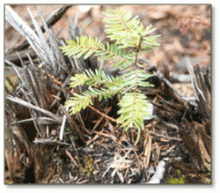 Board Recommendations on Not Satisfactorily Restocked Forests
Board Recommendations on Not Satisfactorily Restocked Forests
(Special Investigation Report 42)
 Board Recommendations on Not Satisfactorily Restocked Forests
Board Recommendations on Not Satisfactorily Restocked Forests
(Special Investigation Report 42)
In October, the Ministry of Forests, Lands and Natural Resource Operations responded to recommendations made by the Board in our Special Investigation Report 42:
How much of British Columbia’s forest is not satisfactorily restocked?
And what should be done about it?
The Ministry described recent analyses, emerging reports, and ongoing processes to address the Board recommendations. For example, the Ministry is using its change-detection mapping process as part of inventory updating to validate new assumptions regarding salvage. The Ministry will soon be releasing its estimate of stocking status and investment opportunities on areas impacted by beetle and fire, and the Ministry has a number of major inventory projects underway that may provide additional clarity for NSR forests.
The Board was pleased to see such work underway, but did express concern regarding some of the assumptions that the Ministry is making in this work. The Board will continue to follow up on progress that has been made on these recommendations in November of 2013. Both letters are available on our website.
Field Season Summary
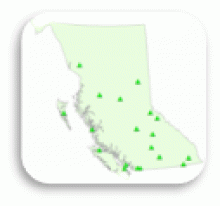 Board staff visited every corner of the province this past summer and fall. Board auditors carried out 10 new audits, looking at a variety of tenure types. These audits, some of which covered multiple licences, included six forest licences, two non-replaceable forest licences, one tree farm licence, four occupant licenses to cut, two community forest agreements and two BCTS programs. Auditors visited operations near the communities of Stewart, Fort St. James and Chetwynd in the north; McBride, Valemount, Williams Lake, Kamloops and Cranbrook in the Interior; and Bella Bella and Chilliwack near the coast. Four of the audits have been completed and published, and the remaining reports will come out in 2013.
Board staff visited every corner of the province this past summer and fall. Board auditors carried out 10 new audits, looking at a variety of tenure types. These audits, some of which covered multiple licences, included six forest licences, two non-replaceable forest licences, one tree farm licence, four occupant licenses to cut, two community forest agreements and two BCTS programs. Auditors visited operations near the communities of Stewart, Fort St. James and Chetwynd in the north; McBride, Valemount, Williams Lake, Kamloops and Cranbrook in the Interior; and Bella Bella and Chilliwack near the coast. Four of the audits have been completed and published, and the remaining reports will come out in 2013.
Board staff also did field work for two special investigations. One team examined Karst on central and northern Vancouver Island. Another team examined field conditions in eight community watersheds, visiting Haida Gwaii, Smithers, Clearwater, the Okanagan Valley, Mission, Sechelt and Vancouver Island. Both of those special investigations will wrap up in 2013.
Strategic Planning: Board Priorities For 2013
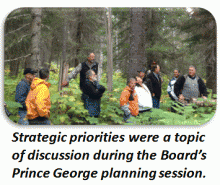 In September, the Board met in Prince George and spent a day developing its strategic priorities for the next 18 months.
In September, the Board met in Prince George and spent a day developing its strategic priorities for the next 18 months.
The three strategic priorities we have been using for the past couple of years (resilient forest, information, and fire) are still important, but they now fall into the regular business category and will not necessarily drive future special projects. The Board will prepare a summary report on what we did/found in those topic areas, what has happened in response to our reports and recommendations, and what other work may be going on or completed by others on those subjects.
The question “How well is FRPA working?” continues to be a strategic priority for the Board. Project work that contributes to answering that question is a priority.
A new priority identified for this year is assembling the results of past work to produce reports highlighting important issues that have come up in multiple Board reports, particularly where the issues relate to how well FRPA is working. Look for several special reports on recurring issues to come out in 2013.
While these strategic priorities help direct the Board’s efforts in preparing special reports and carrying out new special investigations, we continue to focus our efforts on our main mandates of investigating public complaints and auditing compliance with FRPA and the Wildfire Act and appropriateness of government enforcement. We also continue to participate in administrative appeals, as appropriate.
Forestry Activities Of Non-forestry Operators And Their Impacts To Forest Resources
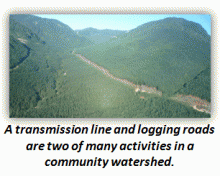 During the fieldwork portion of our ongoing special investigation into community watersheds, Board staff have seen a number of examples of forestry activities (harvesting and roads) for non-forestry purposes (transmission lines, run of river power projects, etc.) that are carried out under provincial authorizations, but are not subject to the requirements of FRPA. In some cases, these activities may be posing a risk to water, and limiting the ability of forestry licensees to meet government’s objectives for water in community watersheds. As the amount and pace of non-forestry resource development is growing, these types of tenure conflicts are becoming more common. We have seen similar issues in two audits carried out this past summer. Forestry is no longer the only significant industry player on much of BC’s forest land, and there is a need for more integrated management of, and consistent standards for, natural resource development. Look for discussion of this issue in Board reports that will be coming out in 2013.
During the fieldwork portion of our ongoing special investigation into community watersheds, Board staff have seen a number of examples of forestry activities (harvesting and roads) for non-forestry purposes (transmission lines, run of river power projects, etc.) that are carried out under provincial authorizations, but are not subject to the requirements of FRPA. In some cases, these activities may be posing a risk to water, and limiting the ability of forestry licensees to meet government’s objectives for water in community watersheds. As the amount and pace of non-forestry resource development is growing, these types of tenure conflicts are becoming more common. We have seen similar issues in two audits carried out this past summer. Forestry is no longer the only significant industry player on much of BC’s forest land, and there is a need for more integrated management of, and consistent standards for, natural resource development. Look for discussion of this issue in Board reports that will be coming out in 2013.
Changes To Legislation Limit Board Oversight Of Oil And Gas
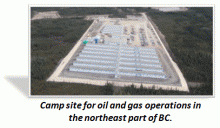 The Forest Practices Board can no longer examine forest practices in the oil and gas sector. A recent change in legislation means that master licences to cut under the Forest Act, issued to oil and gas companies, are now issued under the Oil and Gas Activities Act and are no longer subject to the Forest and Range Practices Act. This means they are no longer subject to Board audits or investigations.
The Forest Practices Board can no longer examine forest practices in the oil and gas sector. A recent change in legislation means that master licences to cut under the Forest Act, issued to oil and gas companies, are now issued under the Oil and Gas Activities Act and are no longer subject to the Forest and Range Practices Act. This means they are no longer subject to Board audits or investigations.
Over the years, the Board has published several reports on the results of audits of forest practices in the oil and gas sector, including two separate audits involving the forest practices of oil and gas companies in the Ft. Nelson District and the Peace District, published in 2010 and 2011, and an audit of several oil and gas companies in the Ft. Nelson Forest District, published in 2002. This 2002 audit identified and raised concern about the variety of legislation and regulation, each with its own standards and requirements, that applies to resource roads in British Columbia. Work on addressing this issue is still ongoing today, with the proposed Natural Resource Road Act that is currently in development.
The Board has been concerned for a number of years about the cumulative effects of resource use on the landbase, so the loss of independent oversight of forest practices in this important resource sector is a concern.
Terreweb
The Board is supporting an innovative graduate program at the University of British Columbia involving communication of scientific information. Funded by the NSERC-CREATE (Collaborative Research and Training Experience) initiative, “TerreWEB aims to have Master and PhD students integrate global change science, social science and communications research. TerreWEB is a graduate training program focused on global change impacts on terrestrial ecosystems, mitigation and adaptation strategies, and the role of scientific communication to affect appropriate changes in human behaviour for adapting to global change.”
The Board’s interest in Terreweb is around improving the communication of complex science information to the public. Our fundamental purpose is to inform the public about forest practices in BC – a subject that is often complicated and difficult to communicate in a compelling, yet understandable way. We are looking forward to engaging with TerreWeb students in the New Year at a workshop to explore how to better communicate with the public.

